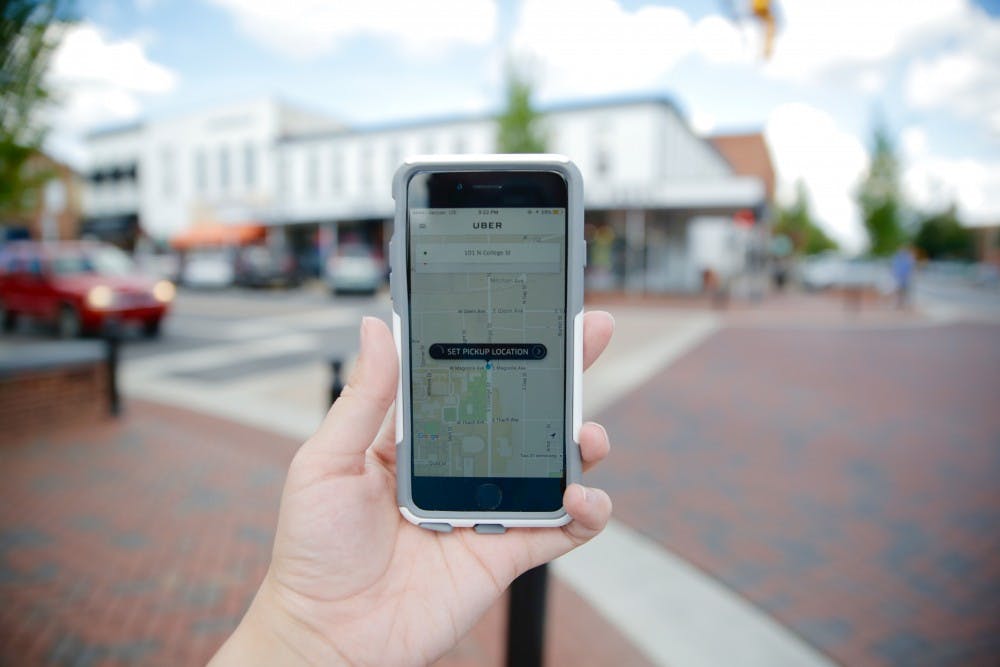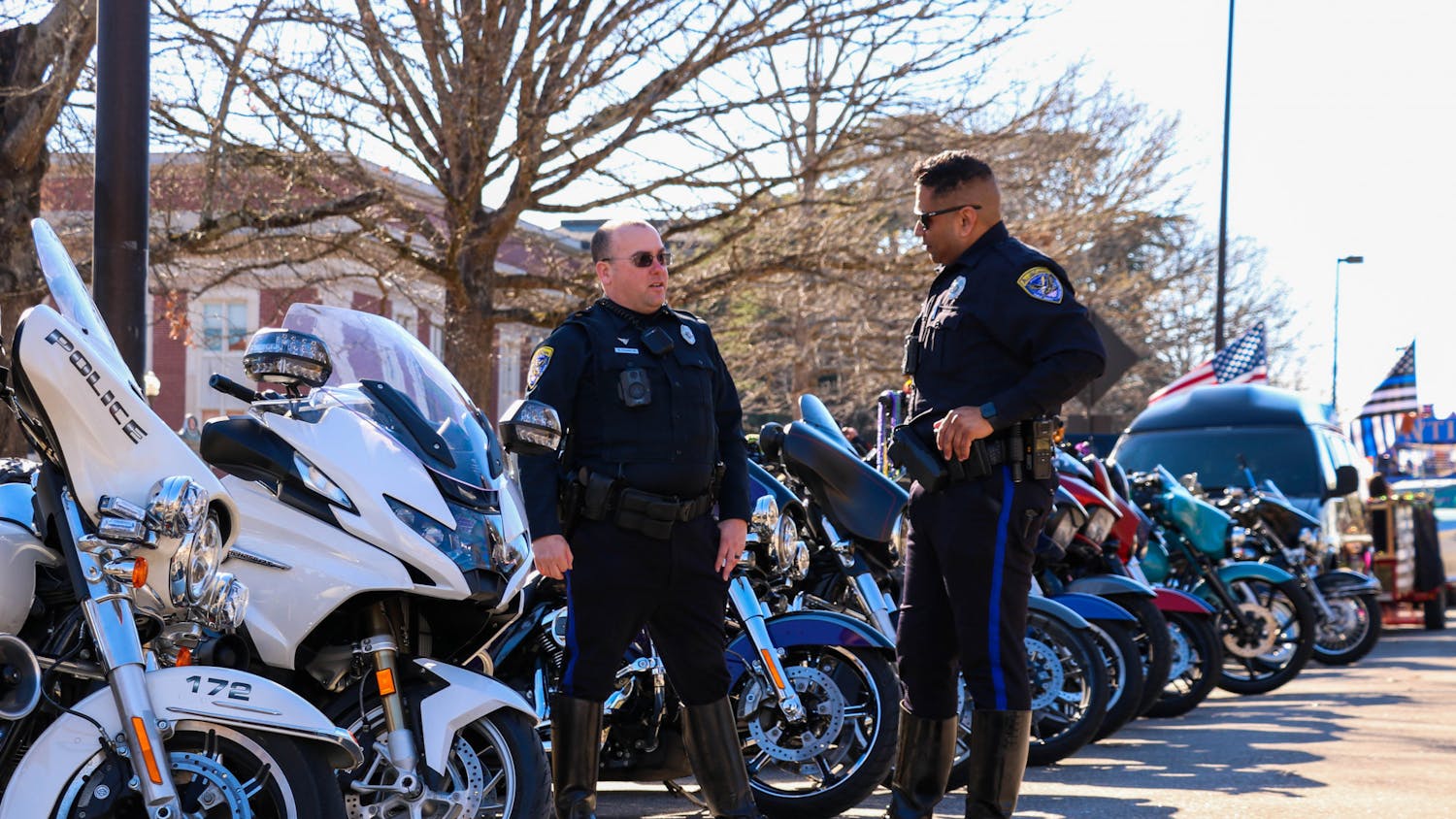Starting in July, Auburn is hoping to offer students, faculty and staff discounted rides through a company like Uber or Lyft.
The University released a request for proposals Tuesday, officially launching the process to find a specific company to offer the discounted rides.
The request asks bidders, whether it be Uber, Lyft or another ride-hailing company, to provide specific details about how they could implement such a program on campus.
The partnership with the company will provide “safe-ride” and “ride-share” services within a 5-mile radius of campus during designated hours, according to the request for proposals. The University said the system will supplement existing transportation options on and off campus.
Student Government President Dane Block told The Plainsman that SGA has been heavily involved in pushing for such a ride-hailing partnership.
“This idea of a subsidized ride-share program came from analyzing what students are using most now in the forms of transportation,” Block said. “We have limited parking on campus, and that issue will be addressed in the coming years, but another issue we need to address is how to get people from point A to point B.”
The RFP outlines a broad framework for how the partnership would work. Whether the partnership will be with Uber, Lyft or another third party will be determined by an open bid process.
After a bidder is selected, contract negotiations will determine the exact cost and how much of a discount the University and the ride-hailing partner will be able to provide students, faculty and staff.
“There are different models that work throughout the nation,” Block said. “Some give full discounts and students have free rides. There are some that work with declining debit balance. Some essentially work like a credit card.”
The University of Alabama launched a similar program last year. It offers anyone with an Alabama ID a 15 percent discount on Lyft rides 24 hours a day. And on typical bar nights, the program offers an additional 10 percent discount for a total 25 percent discount on Lyft rides.
Auburn appears to be moving in a similar direction.
The framework of the University’s request calls for a “ride-sharing program” to be available 24 hours a day whenever classes are in session.
A separate “safe-ride program” would be available Wednesday night through Sunday night from 10 p.m. to 3 a.m. The heftier discount would likely apply during those late-night rides to incentivize students to take safer rides home from local bars.
“During that time frame, any registered student can go on their Uber or Lyft or another third-party app and request a ride within a certain radius of the campus,” Block said. “We’re utilizing the University’s funds for transportation and utilizing the third parties who have perfected giving these personalized rides.”
Block said part of the discussion has been about how to better make use of the University’s funds.
Tiger Ten service — the late-night buses that run from downtown on weekends from 10:30 p.m. to 3 a.m. — has seen a decrease in ridership in recent years. The decrease is about 50 percent since the service launched, he said.
“I don’t think this is really any surprise because we’re always pushing and moving forward,” Block said. “Students love technology. People love technology. It’s really just figuring out how to leverage that technology when it comes to transportation.”
With any new service, there will be concerns about safety, Block said. The contract will include certain safety requirements like background checks and licensing.
“They are constantly being innovative in how they can improve the rides for the individual, whether that be technology on the phone to track where you’re going to or to share your location with a friend or a family member,” Block said. “Or also being able to dial 911 or another emergency service right there through the app.”
Tiger Ten has had its own safety issues that may have contributed to a drop in ridership.
In 2017, two drivers were arrested and charged in connection with a student who was raped on a Tiger Ten bus.
The trial of the two men, Tony Patillo and James Johnson, is set for later this month.
The contractor who runs the bus system, First Transit, later decided to place a security guard on each late-night bus.
It isn’t clear whether the Tiger Ten service will be discontinued or simply restructured when a ride-hailing partnership arrives on campus.
“One thing we’ve really done as SGA is to make sure we’ve done everything as far as marketing to make sure everyone knows about the opportunities,” Block said. “As we’ve seen, it did not improve the ridership at all. When the Tiger Ten was first implemented it was serving masses. It was killing it. But as time has gone on, ridership has decreased.”
Daytime Tiger Transit service won’t be leaving campus, though. The 24/7 discounted Uber or Lyft rides will be a supplement to Tiger Transit service, which is free for students. Security shuttles, which provide free nighttime transportation on campus, will remain, as well.
“Obviously you can’t fully take out a University-funded transit such as Tiger Transit,” Block said. “That serves the masses. Uber and Lyft or any other third party just simply won’t have the capability to serve a student body of over 30,000.”
The University is also working to standardize pick-up and drop-off zones within main campus.
The partnership would provide benefits for Auburn students, faculty and staff on official University trips, too.
The deadline for companies to bid on providing the service is March 13, and the service will be fully implemented by July 1, 2019.
Do you like this story? The Plainsman doesn't accept money from tuition or student fees, and we don't charge a subscription fee. But you can donate to support The Plainsman.

Chip Brownlee, senior in journalism and political science, is the editor-in-chief of The Auburn Plainsman.





